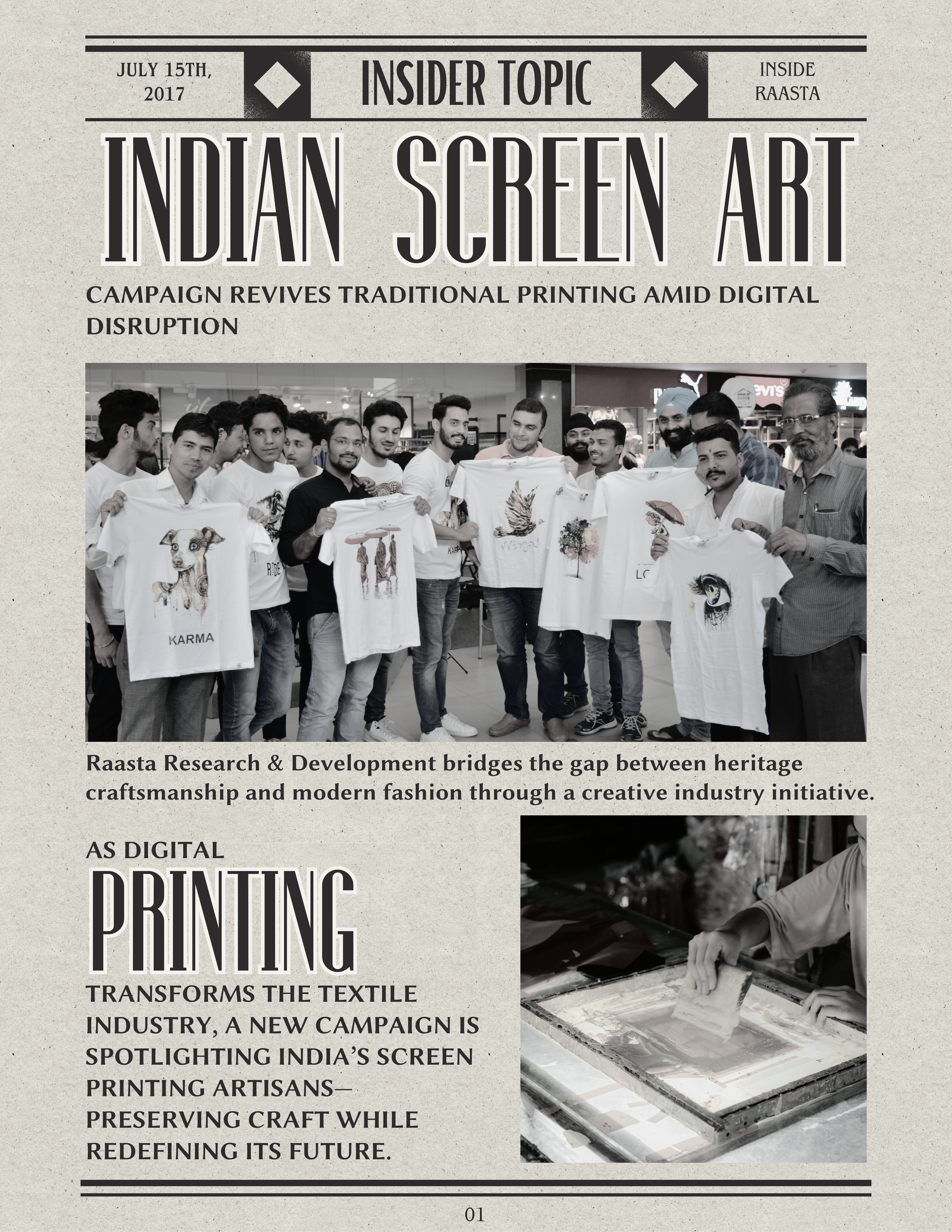The Context
A Craft at the Crossroads
With the rise of digital textile printing in the early 2010s, the future of traditional screen art in the clothing industry came under question. For generations, screen printing had been a vital craft—deeply connected to local artistry, labor economies, and the handmade identity of Indian textiles.
However, as digital methods began to offer faster, cheaper, and mass-scalable solutions, the artisans and workers who sustained the screen printing tradition were suddenly confronted with an uncertain future. Fear, confusion, and economic insecurity gripped a workforce that had spent decades perfecting its art.
Our Response
The Indian Screen Art Campaign
In response to this transition, Raasta Research & Development launched the Indian Screen Art campaign—an initiative to reassert the value of screen art and guide the sector toward a more integrated and secure future.
Our aim was not to oppose technology, but to bridge the gap between tradition and innovation, and ensure that the people behind the screens—designers, printers, block-makers, and artisans—would not be left behind in the evolution of the fashion and fabric industry.
The campaign emphasized responsible and immersive travel—journeys where tourists become participants, not mere spectators. By consciously redirecting tourism influx to remote and culturally rich areas, the project aimed to distribute economic opportunities more equitably across the state. Simultaneously, it worked to document the intangible heritage of the region—oral histories, folklore, rituals, and everyday practices that shape the rhythm of village life.
We curated and developed a multi-layered campaign that:
Showcased the beauty and cultural richness of screen art through live demonstrations, exhibitions, and storytelling.
Connected handmade artists and screen artists in collaborative design labs, where traditional motifs met contemporary formats.
Displayed the versatility of screen printing—its texture, character, and depth that digital methods often cannot replicate.
Engaged the clothing industry and design students to highlight how screen art can continue to co-exist and even enhance digital approaches.
Created awareness about the socio-economic importance of retaining artisanal methods and the human stories behind every screen-printed fabric.
Impact
Creativity, Continuity, and Confidence
Through public exhibitions, artist-led fashion showcases, and collaborative design events, Indian Screen Art managed to reframe the narrative around the screen printing sector. It demonstrated that technology and tradition are not enemies—but potential allies in creativity and sustainability.
The campaign
- Helped retain faith in the craft among younger artisans and workers, many of whom were considering exiting the trade.
- Sparked renewed interest among designers and small fashion houses in hybrid and handmade techniques.
- Encouraged dialogue between industry leaders and traditional artists, opening doors for partnerships and product innovation.
- Promoted the screen artist as not just a technician, but as a cultural contributor in the evolution of Indian fashion.
The Vision Ahead
Indian Screen Art continues to inspire our belief that cultural economies need not be sacrificed at the altar of technology. When thoughtfully integrated, the old and the new can shape a richer, more inclusive, and creative future.
At Raasta, we remain committed to defending and celebrating the human hands behind every print—because in every screen lies a story, and in every story, a future waiting to be printed.


